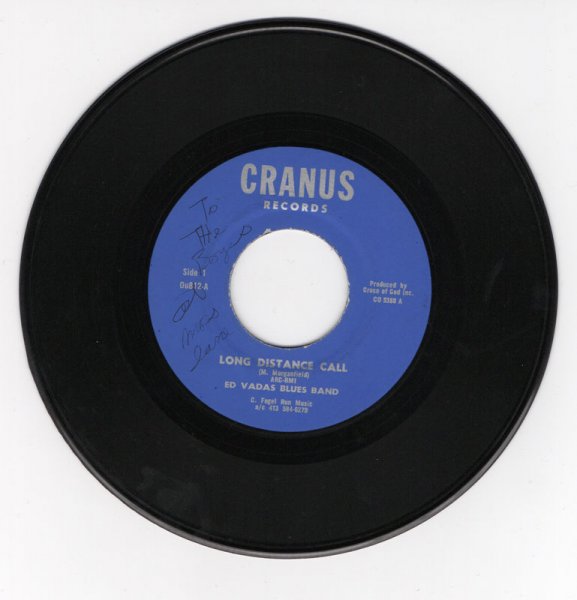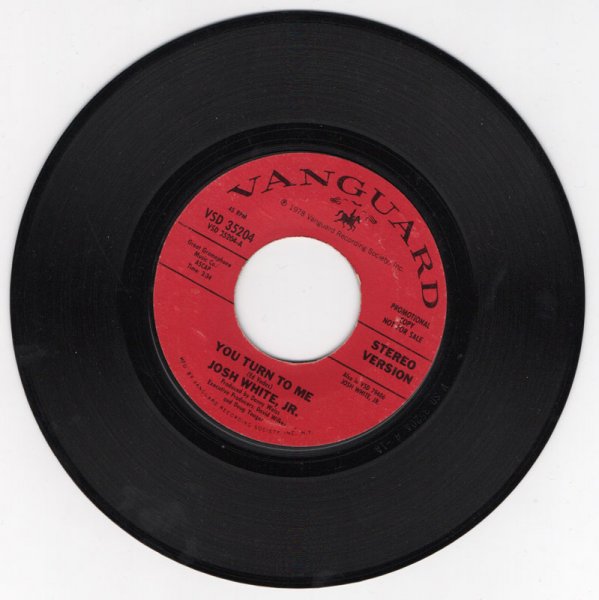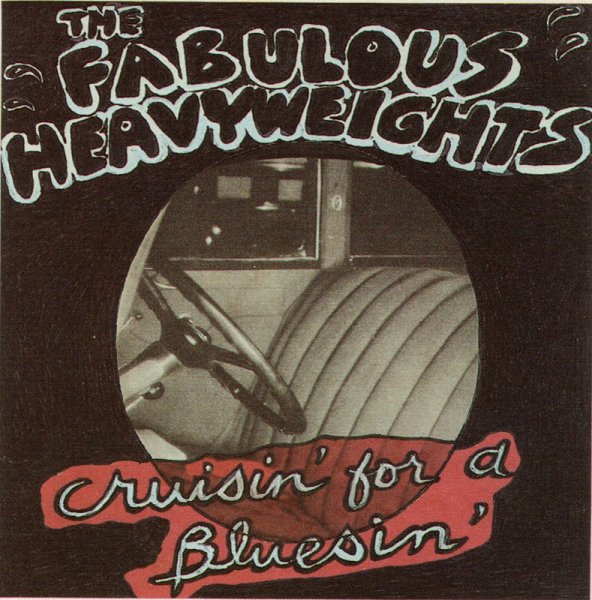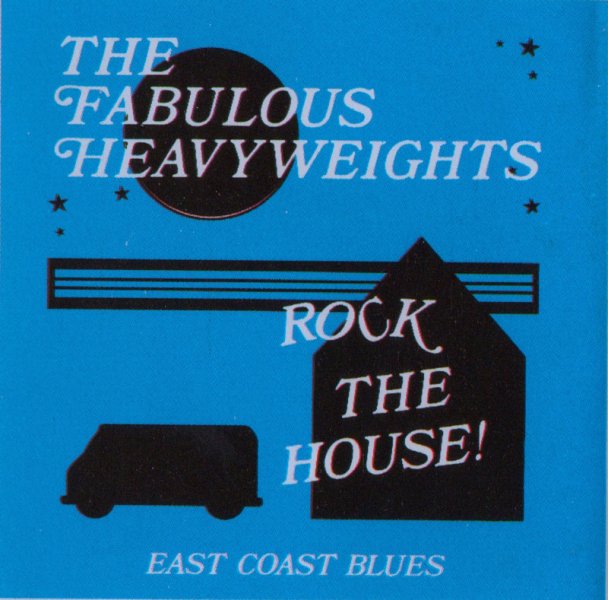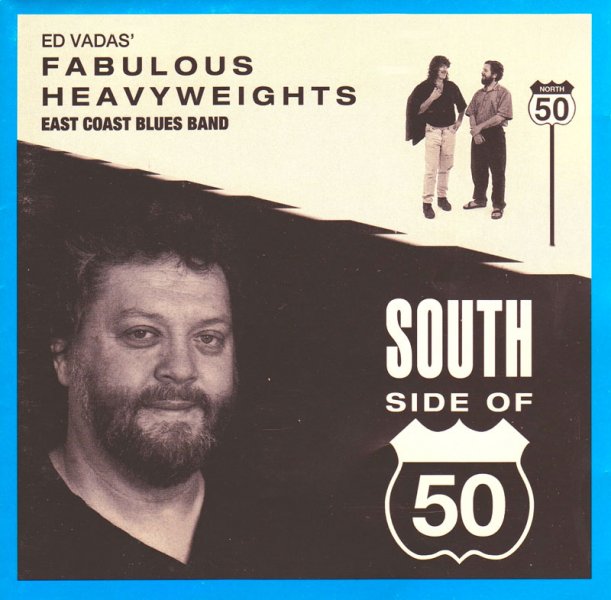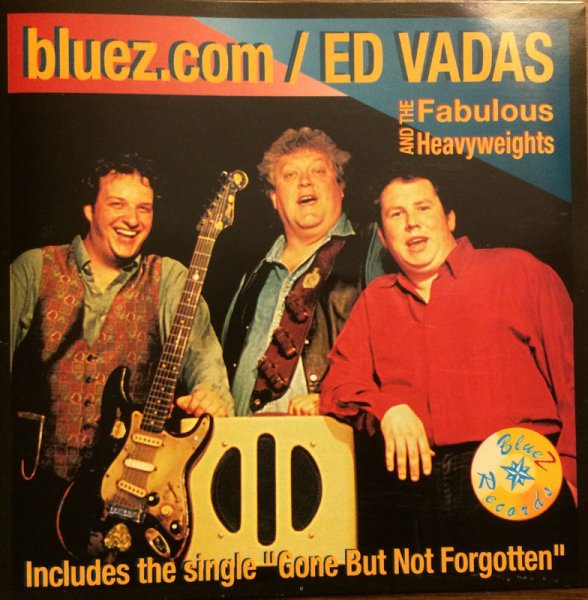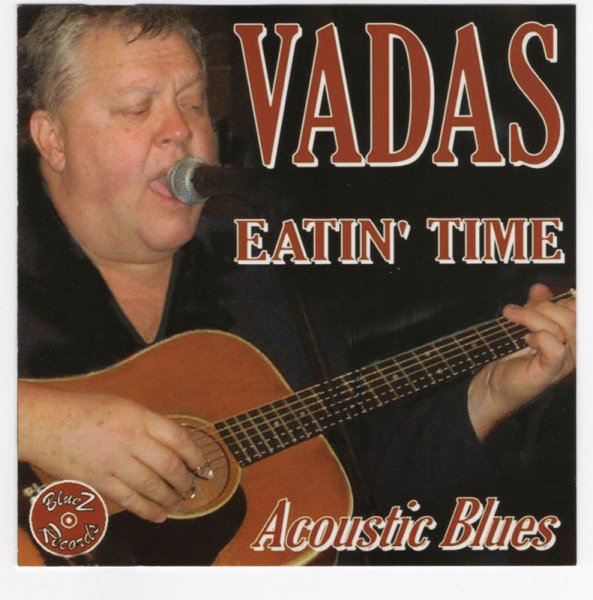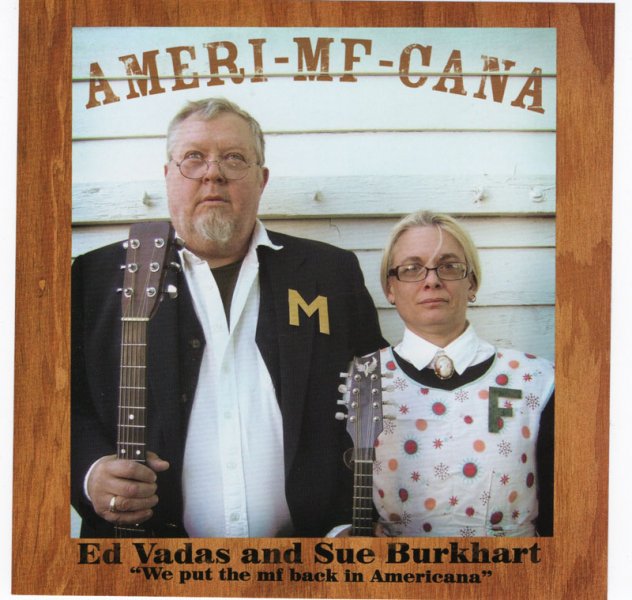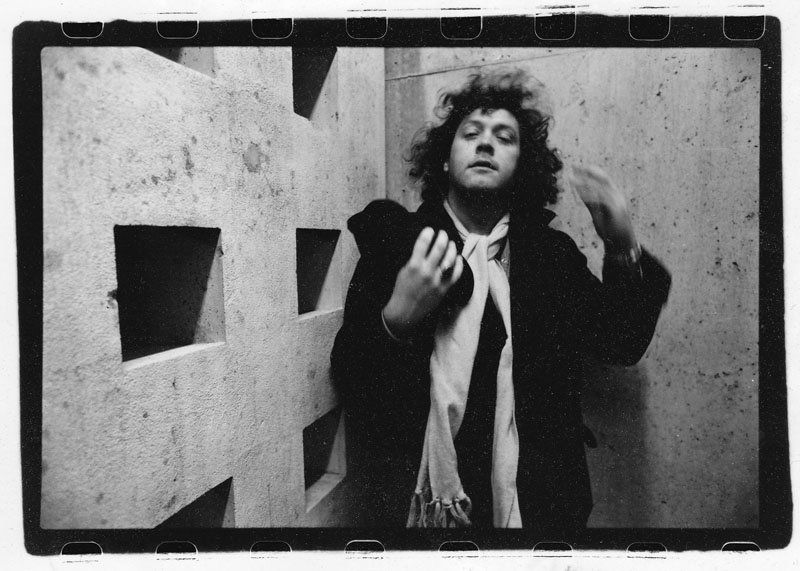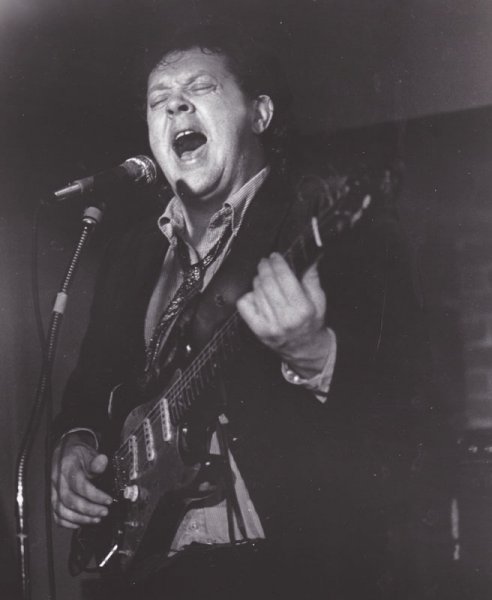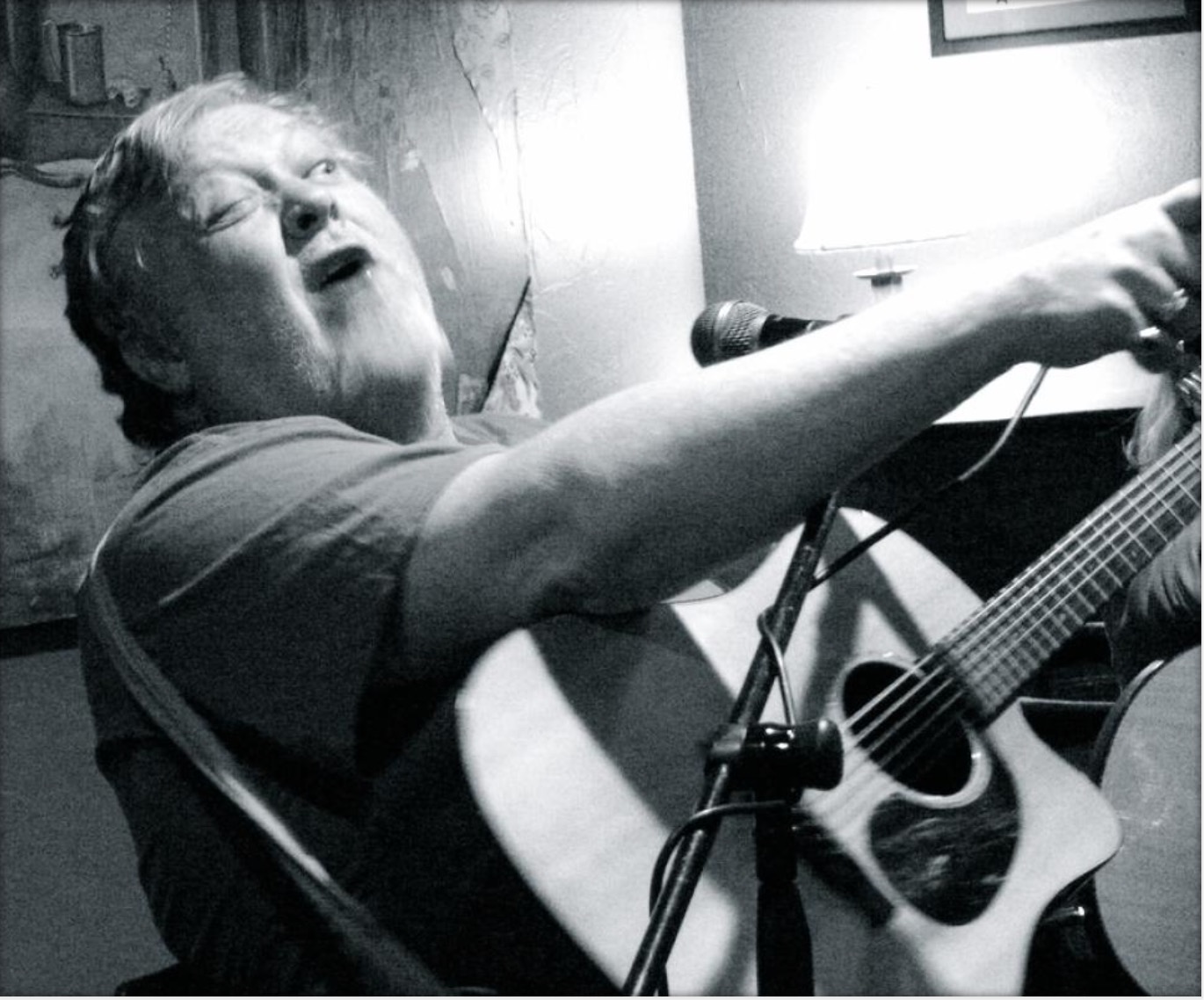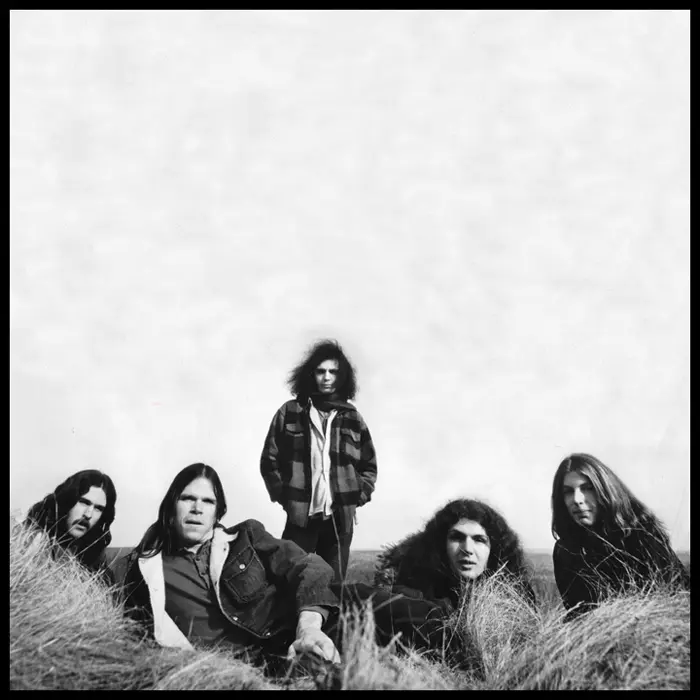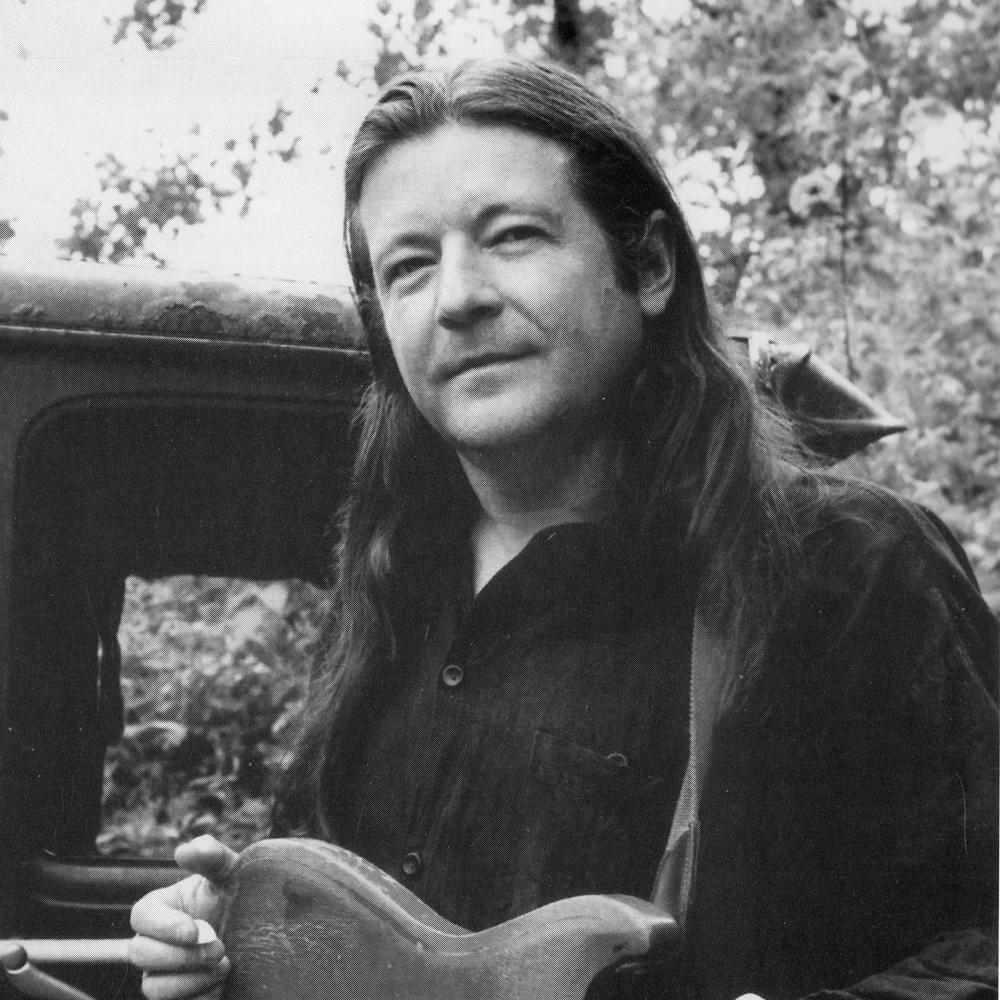Ed Vadas
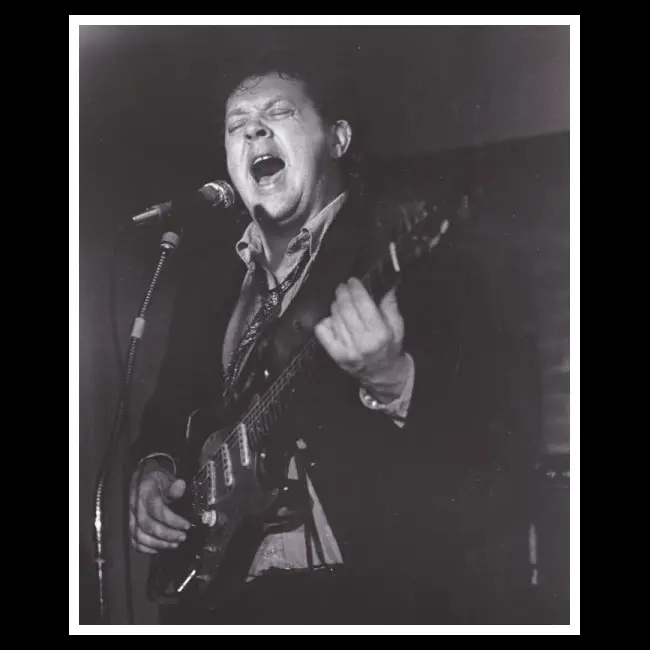
With a towering presence and commanding on-stage versatility, Ed Vadas was affectionately known as “Vast Ed Vadas” to many on the folk and blues circuits in New England and beyond. Born in Worcester, Massachusetts on September 26, 1944, he was many things – performer, songwriter, philosopher, storyteller, blues scholar, actor, teacher – but above all he was a musician’s musician.
After moving to Amherst to attend UMass following a stint in Vietnam, he settled in Western Massachusetts, where he fronted various incarnations of The Ed Vadas Blues Band and The Fabulous Heavyweights while becoming an in-demand sideman who was often called upon when the likes of Bo Diddley, James Cotton or Otis Rush came to the area.
MUSICAL BEGINNINGS, INFLUENCES, VIETNAM
While in high school, Vadas regularly visited the Worcester Public Library to check out American folk music discovered by Alan Lomax or recorded by the Weavers and Lead Belly. There, in the reading room wearing a headset, he got his introduction to the blues. After graduating, he joined the Air Force and, during his first year stationed in New Jersey, he began playing banjo, his early influences including Dave Van Ronk and Reverend Gary Davis.
From 1963 to 1966, he was a clerk/typist before being transferred to South Vietnam as a courier, delivering documents and other sensitive materials throughout the war-torn country. His life was forever changed when he won a talent contest on the Tan Son Nhut Air Base near Saigon, singing and playing washtub; he was re-assigned to the Army in May 1967 to entertain fellow troops in a military band called The Sorties.
“It was all very weird,” he said years later. “It was the first band I was ever in, a road band in a war zone, where we got shot at. But I got to sing and play bass and harmonica. It all paid off when I finally get on the plane to head back to the States in August 1967. One of those guys who I’d played for says, ‘I know you,’ and starts screaming excitedly. As people take their seats on the plane, he yells out, ‘Hey you guys, this guy here, he entertained us out in the fields! And he was great!’ I got a standing ovation from those guys in the plane, and I thought, maybe this is what I should do. I’d never before given that one thought.”
EARLY GIGS, RECORDINGS, SENSE OF HUMOR
After enrolling at UMass Amherst in 1969, Vadas became known on campus and in nearby clubs and bars for his newly honed skills as a scorching axeman and as a Little Walter-inspired harmonica whiz. His first record, now a collectible single by the gritty Ed Vadas Blues Band, features his blistering versions of Muddy Waters’ “Long Distance Call” and Howlin’ Wolf’s “How Many More Years.” Released on Vadas’ own Cranus Records label (home of several future Vadas albums), it sold well in area record shops.
Vadas changed gears dramatically in the mid-1970s, performing his eclectic, genre-defying sets with plenty of humor. A May 1976 review in the Greenfield Recorder raved about his “quick and penetrating verbal wit” and his band’s “carefully worked-out stage routine that leaves the audience rolling under their tables.”
Guitarist bandmate Tommy Filiault recalls a typical Vadas moment from that period: “We were playing some outdoor concert in Maine. We’re rocking the set and Eddie is playing slide guitar. His tone and attack are dead-on Elmore James. He could quote all the greats but through his own voice. We’re rocking this tune and a guy walks by the stage eating a hot dog. Eddie motions to him and the guy offers Eddie the hot dog. Well, Eddie takes the hot dog and starts playing slide with it. The hot dog is falling to pieces and he is sliding it up and down the neck of his guitar. I look over at the other guys on stage and we’re dying laughing. Eddie would do anything to make us and the crowd laugh. It was about the moment! Eddie was about now!”
TOURING SOLO, CRUISIN’ FOR A BLUESIN’, TELEVISION/FILM CAMEOS
In the late ‘70s, Vadas began touring as a solo artist, traveling from Alaska to Bermuda to the Bornholm Festival in Denmark, with plenty of Manhattan gigs (including ones at Tramps) sprinkled in. He shared billings there with blues masters including Edith Wilson and J.B. Hutto. Vadas fondly recalls playing at Tramps with legendary blues singer Alberta Hunter in the audience. He grins, remembering her telling him after his set, “You do good up there, boy. You do good up there.”
In 1984, Vadas cut his first album, Cruisin’ for a Bluesin’, with his band, The Fabulous Heavyweights, on cassette. One of its songs, the original ballad “You Turn to Me,” had been covered to considerable fanfare by folk-blues singer Josh White Jr. on Vanguard. Back then, Vadas’ bands worked relentlessly, often leaving Massachusetts for months on end. In addition to recording/performing, he made cameo appearances in the television movie Svengali (1983, as M.C., starring Peter O’Toole and Jodie Foster) and feature film The Money Pit (1986, starring Tom Hanks and Shelley Long). In the latter, Vadas appears alongside Mountain frontman Leslie West as part of a cross-dressing band called Cheap Girls.
ROCK THE HOUSE! EAST COAST BLUES, SOUTH SIDE OF FIFTY, BLUEZ.COM
In March 1989, with a revised Heavyweights lineup, Vadas records Rock the House! East Coast Blues at Derek Recording Studio in Dalton, Massachusetts, with Greg Steele as engineer and Roger Kirwood as executive producer. The album is packed with original Vadas compositions, covers of songs by other stellar bluesmen, and respectfully dedicated to the memories of Chester Burnett, McKinley Morganfield and drummer Gary Chester.
The Heavyweights’ 1993 follow-up album, South Side of Fifty, has topical undertones and contains eight Vadas originals including “Please! Mr. Bill,” aimed at President Clinton, and “Start All Over Again” which begins, “Men got to start all over again / Demand all the violence end / And make all women our friend.” The LP also features gritty covers of songs by Muddy Waters, Willie Dixon and Howlin’ Wolf. “If blues is played right, it works like an exorcism of your soul. True blues exorcists these days are few and far between. For me, Ed Vadas is one of them,” read a November 1993 review in Blues Audience. I cried when I listened to ‘Start All Over Again.’ It starts out like a relaxing stroll through a rainforest and suddenly changes atmosphere to the harsh reality of a slash-and-burn plantation…Put this (album) on my list of desert-island essentials.”
Vadas’ next album with The Fabulous Heavyweights was 1998’s Bluez.com. Again recorded in Dalton and critically acclaimed, the disc includes a reworking of an older original, the politically tinged “No Good News” which, Vadas says, “takes a swipe at how we as a society elevate the banal to a place of importance, and vice versa.” Bluez.com includes one of Vadas’ most-played radio songs, “Gone But Not Forgotten,” written out of a sense of loss, not only for a close friend but as a nod to many recently departed blues greats. The band here comprises longtime bandmate Steve “Junior” Toutant on bass, Fred Hazelton on drums and Vadas on guitars, harmonica and lead vocals.
“THE ED VADAS SCHOOL OF FEAR AND INTIMIDATION”
Describing the experience of working with the oft-strident Vadas, Toutant says, “Playing with Ed was affectionately known as attending the Ed Vadas School of Fear and Intimidation. I almost quit his band at the end of every gig for the first six months. Thankfully I had enough fortitude to stick it out. What kept me going was a belief that he understood something about music, a combination of syncopation and dynamics, that no one else I’d ever played with had even hinted about. Once I was able to play music at the level he demanded, it seemed hollow to play any other way.”
Peter Newland, longtime recording artist and frontman for Fat and Radio Xile, played many of the same venues as Vadas over the decades. “Any retrospective of the Vast One,” notes Newland, “would not be complete and honest without mention of his famous temper and heated outbursts. I’ve been on the receiving end of his ire, and it was something I came to accept once I knew the man and understood the nature of his rants. Ed was a bluesman, complete in every sense of the word. If you had the privilege of hearing him sing Howlin’ Wolf’s ‘Goin’ Down Slow,’ you know what I mean. Almost all of his tirades that I have witnessed or been the target of have been about the music. To Ed, the blues was a commitment, a lifestyle, an attitude. Now I’m not one for having people yell at me… but when it came to the blues, I gave Ed license. He lived it.”
Ray Mason, another Western Massachusetts musical legend and prolific recording artist, recalls Vadas as a “mountain of a man,” noting that it was what was inside that truly made him shine. “Even though he could be intimidating, Ed was a real teddy-bear sweetheart,” he said. “And could he play and sing or what? Ed always struck me as a great soul singer. And an even more amazing guitarist. He could play one note to everyone else’s 10 and make heads spin!”
EATIN’ TIME/ACOUSTIC BLUES, AMERI-MF-CANA, RETURN TO ACTING
Vadas’ next outing, Eatin’ Time/Acoustic Blues (2004), was an intimate, stripped-down solo album with him on guitar and vocals and no overdubs. Dedicated to “a world without fear, where people can learn to love and respect themselves, and others,” it includes five Vadas originals and songs by Muddy Waters and Mississippi John Hurt. In 2007, with musical collaborator and close friend Sue Burkhart, Vadas recorded Ameri-MF-Cana, containing traditional material by Duke Ellington, Sonny Terry and Brownie McGhee and others. Listening to this album is like listening to two stellar and telepathic musical forces playing their hearts out in your living room.
After Ameri-MF-Cana dropped, Vadas returned to acting as Crazy Jake in the film The Cowboy and the Tavern. Jake, like Vadas, is a musician, and Vadas’ down-home honesty and big heart come through every time he appears on screen. His performance alone makes this film worth watching. The Cowboy and the Tavern premiered at the Basketball Hall of Fame in Springfield in March 2015.
DEATH, COMMENTS ON HONESTY/TRUTH
When Ed Vadas passed on February 18, 2016, he was loved and admired as a larger-than-life force and powerful influence on countless musicians, friends, and fans throughout the Northeast. What matters, Vadas always said, is that “You’re honest, you’re true, and the audience is picking up on you. You can do ‘Wild Thing’ and they’ll still go crazy, as long as you’re honest and true.” But ultimately, “Eventually nothing matters, and everything is everything.”
(by David Sokol)

